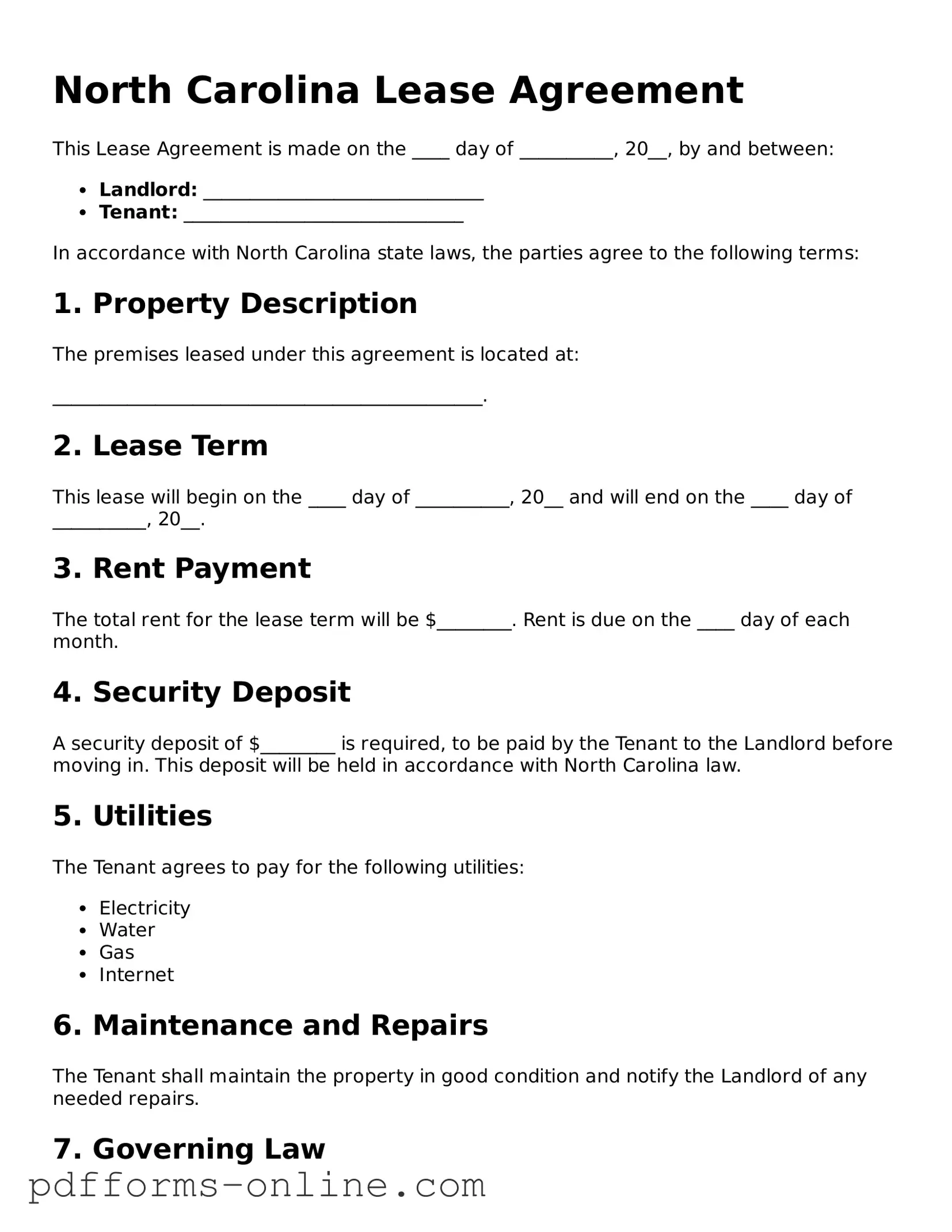North Carolina Lease Agreement
This Lease Agreement is made on the ____ day of __________, 20__, by and between:
- Landlord: ______________________________
- Tenant: ______________________________
In accordance with North Carolina state laws, the parties agree to the following terms:
1. Property Description
The premises leased under this agreement is located at:
______________________________________________.
2. Lease Term
This lease will begin on the ____ day of __________, 20__ and will end on the ____ day of __________, 20__.
3. Rent Payment
The total rent for the lease term will be $________. Rent is due on the ____ day of each month.
4. Security Deposit
A security deposit of $________ is required, to be paid by the Tenant to the Landlord before moving in. This deposit will be held in accordance with North Carolina law.
5. Utilities
The Tenant agrees to pay for the following utilities:
- Electricity
- Water
- Gas
- Internet
6. Maintenance and Repairs
The Tenant shall maintain the property in good condition and notify the Landlord of any needed repairs.
7. Governing Law
This Lease Agreement will be governed by the laws of the State of North Carolina.
8. Signatures
Landlord Signature: ___________________________ Date: ____________
Tenant Signature: _____________________________ Date: ____________
By signing this agreement, both parties acknowledge the terms and agree to fulfill their responsibilities as outlined.
